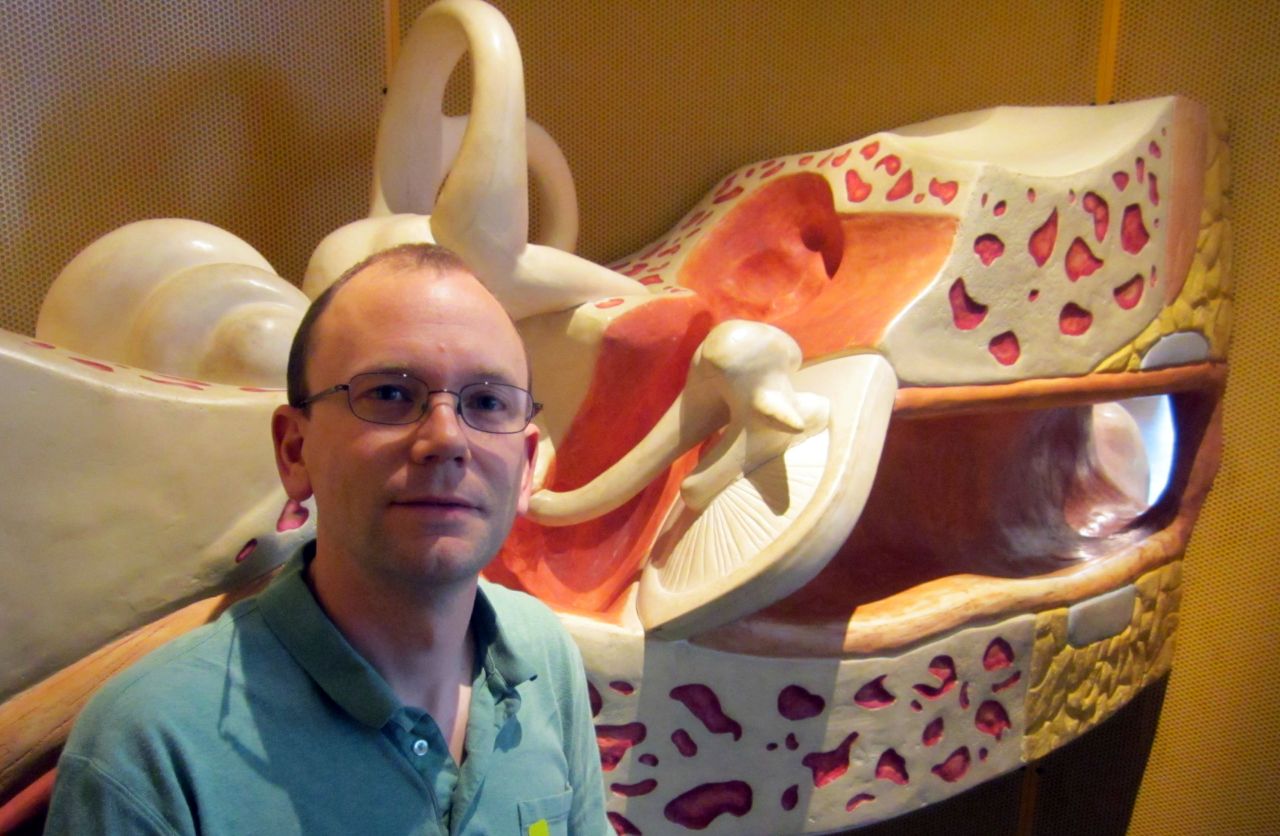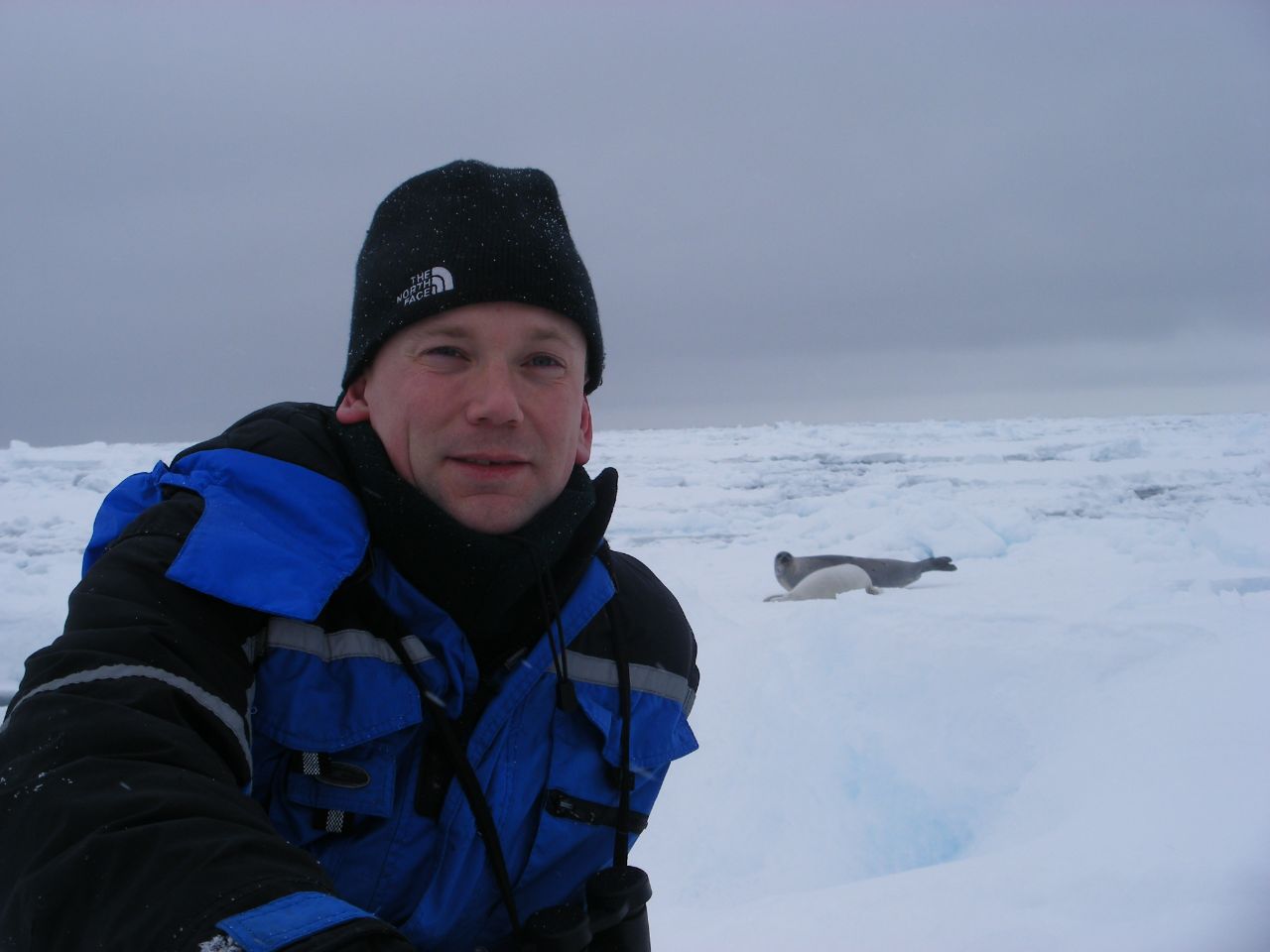SciSoc Spotlight Issue 3 – Dr Matthew J Mason
28 September 2020. Dr Mason is at the Department of Physiology, Development and Neuroscience (PDN). A PDF version of this Issue is available here.Research focus: Comparative physiology: structure, function and evolution of ear in vertebrates.
I am engaged in a number of different research areas at the present time. One of them is looking at the otoconial masses within the inner ears of frogs, a study which evolved from a part 2 PDN project, worked on by one of my third-year undergraduates. The otoconial masses are dense aggregates of crystals which, in humans, help to detect the motion of the body and contribute to balance. In frogs, the relatively much larger otoconial masses may be used in the detection of low-frequency ground vibrations. If so, they would be analogous to the enormous middle ear ossicles found in the golden moles of southern Africa, which I have also worked on. This is because a large, dense structure in the ear can in effect act as an inertial seismometer, like we would use to detect earthquakes. The research I’m currently undertaking on this involves looking at the morphology of the otoliths in a wide range of frogs from around the world, based on 3D reconstructions from micro-CT scans. We are testing several hypotheses, including the notion that the otoconial masses would be larger in burrowing frog species than in others.
What made you decide to pursue research?
I was a veterinary student as an undergraduate, but the anatomical and physiological adaptations of unusual animals always fascinated me. This fascination grew in my years at university; I began to relish the idea of exploring this further and becoming an expert in some small area, finding out new things and being the one to tell the world about them. Diverting into a PhD was the way to achieve this, and having left my veterinary career path I never looked back. My PhD in Cambridge and later my postdoctoral years in California were spent almost exclusively on research, but having returned to Cambridge in 2001 I began to do much more teaching. Now, I very much enjoy the mixture of teaching and research which forms the two sides of the academic coin. Teaching gives you a wider context in which to place your inevitably narrow research area: it’s too easy to lose sight of that bigger picture! Conversely, it is very important to be able to tell science students about how research is actually conducted, in practice as well as in principle, illustrating this with examples from your own career and thus being better able to guide them. What I love about my job now is that I can start the morning giving a lecture on action potentials, immerse myself in some 3D reconstructions of armadillo ears, run a practical class on respiration, review a research paper on naked mole-rats and end the day discussing sap ascent in plants with my supervisees. And the next day will be completely different!
What would be your advice to aspiring researchers?
The most important thing is to choose your research area very carefully. Especially in academic research, carving out a career is difficult. The bottleneck is after the postdoctoral stage, when you are looking for an independent academic lectureship position. What I did not realise until I entered that world is how dominated it is by what kind of scientific research is currently trendy. If you’re not on the right bandwagon you will find it much more difficult to get research grants, and being able to access the big-money grants is effectively essential now for research careers since the universities desperately need the associated income. People outside the system still think it’s all about ‘publish or perish’. It isn’t – it’s about bringing in research funding, or perish. Very often that means that you need to be doing something with an immediate and demonstrable impact on society. Think very carefully before you take that PhD in an interesting but esoteric area of science which might not be attractive to funding bodies later in your career! This is terribly wrong and terribly short-sighted of course, but sadly this is where we are. My second piece of advice is to try to get as much teaching experience as you can: in your early years this may mean supervising or demonstrating in practical classes. You learn so much more from teaching a subject than you did when you took those undergraduate exams yourself. You’ll find that you become better at communicating (vital for writing papers and giving lectures – including job interviews), you’ll retain a better grasp on your subject as a whole and where your research fits into that, and you’ll gain ideas from cognate disciplines that you can then productively apply back into your own work. A single-minded focus on your own narrow research area can sometimes lead to tremendous discoveries, but more often it leads to intellectual sterility. Teaching keeps your mind open.Trackback from your site.

